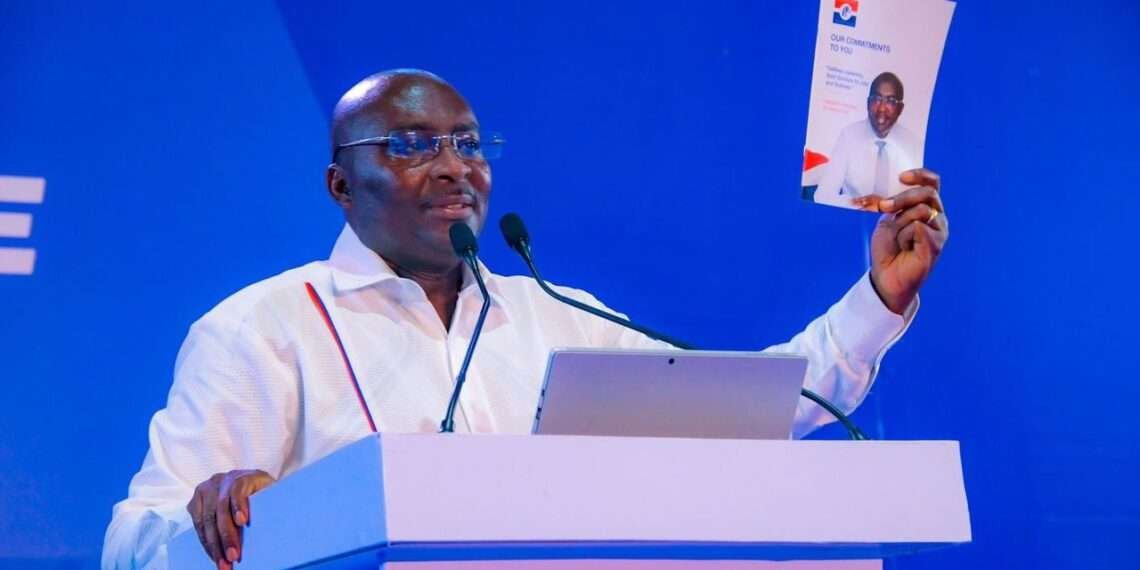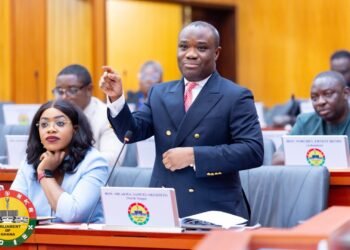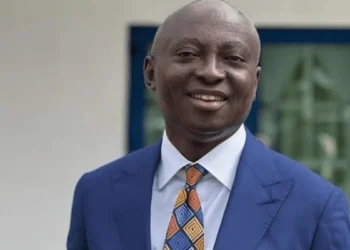Prince Hamid Armah, the chair of the New Patriotic Party’s (NPP) manifesto education subcommittee, has underscored the importance of extensive stakeholder consultation in shaping the party’s education policies for the upcoming 2024 general elections.
Emphasizing that the NPP’s education commitments are the result of thorough and comprehensive engagement with key interest groups, Mr. Armah highlighted that securing stakeholder buy-in was critical to crafting policies that resonate with the needs and expectations of those directly impacted.
Mr. Armah emphasized the inclusiveness of the consultation process, noting that “it was very extensive because the issues around education affect almost everybody, and you want to evolve a policy proposal or policy proposals that will automatically gain the acceptance of the public.”
This approach, he noted, is essential for ensuring that the policies gain widespread acceptance and are effective in addressing the real challenges within the education sector.
To ensure that the NPP’s education policies are inclusive and reflective of the collective aspirations of the education sector, the manifesto subcommittee, led by Mr. Armah, embarked on an extensive outreach campaign.
This involved detailed discussions with a broad range of stakeholders, including Vice-Chancellors Ghana (VCG), the vice-chancellors of technical universities, the University Teachers’ Association of Ghana (UTAG), the National Association of Graduate Teachers (NAGRAT), and the Ghana National Association of Teachers (GNAT).
The subcommittee also engaged with the Coalition of Concerned Teachers (CCT), the National Union of Ghana Students (NUGS), the Teacher Trainees’ Association of Ghana (TTAG), the National Union of Technical Universities, the Conference of Heads of Assisted Secondary Schools (CHASS), the Conference of Heads of Private Second-Cycle Schools (CHOPSS), and various religious leaders.
The engagement with such a wide array of stakeholders ensured that the manifesto reflects the diverse perspectives and concerns of those involved in the education sector, from administrators and teachers to students and parents.
Importance of Stakeholder Buy-In

According to Mr. Armah, the success of any policy is contingent on its acceptance by those it aims to serve.
“Remember that, regardless of how appropriate a policy is, it needs to gain acceptability; once there’s unwillingness to accept, then it becomes an intellectual exercise in futility, and we wanted to avoid that.”
Prince Hamid Armah, Chair of the NPP’s Manifesto Education Subcommittee
This understanding guided the NPP’s approach to formulating their education commitments, ensuring that the final proposals are not only technically sound but also align with the values, needs, and expectations of the education community.
By prioritizing stakeholder engagement, the NPP aims to create policies that are not only effective but also have the broad support needed for successful implementation.
Mr. Armah highlighted that the education policies outlined in the NPP’s 2024 manifesto are a direct reflection of the collective will of the stakeholders consulted. He explained that the proposals are not merely top-down decisions made by the party’s leadership but are instead manifestations of the input and desires of those within the education sector.
“Many of the policy proposals in or the manifesto commitments in this document are manifestations of the expressions of the will of our stakeholders.”
Prince Hamid Armah, Chair of the NPP’s Manifesto Education Subcommittee
This approach ensured that the policies are grounded in the realities of the education sector and are more likely to achieve the desired outcomes, as they are based on the lived experiences and insights of those who are directly involved in education.
As the election approaches, the NPP’s education manifesto will likely be a key element of their campaign, reflecting their broader commitment to governance that is responsive to the needs and aspirations of the people.
The NPP’s education manifesto for the 2024 elections, as championed by Prince Hamid Armah, exemplifies the party’s dedication to creating policies that are not only well-conceived but also widely accepted.
READ ALSO: War-Torn Sudan Faces Second Deadly Cholera Outbreak























